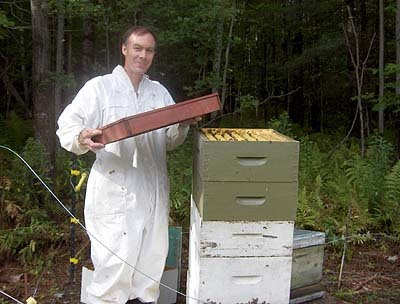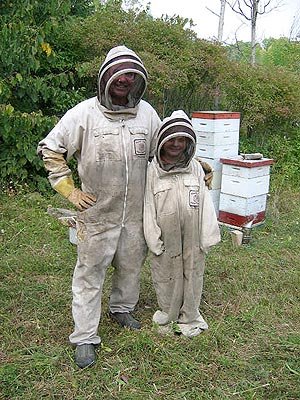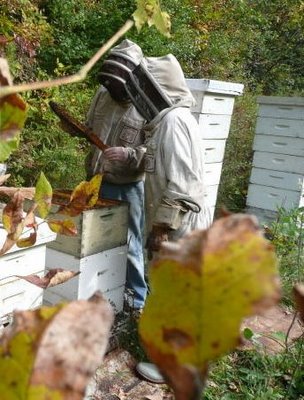our youth as the next caretakers of the honey bees
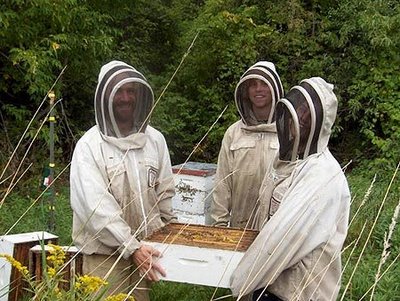
harvest honey from the bees
on the Willowell land, Monkton, Vermont
While I have only logged a few hours with the bees at the hives in my young beekeeping career, my entire understanding of bees and everything that has to do with them is growing exponentially. Before walking into Honey Gardens this summer, simply looking for a summer job, I knew very little about bees and frankly didn’t really care to learn much about them. As time went on, bottling countless pounds of honey, I was able to observe the bees that had wandered into the honey house. After being frightened of the bees, I realized that I had been working at Honey Gardens, with thousands of bees, for about a month and I hadn’t been stung. Through my observations I noticed how gentle, calm, and even how cute the bees were. How could something so much smaller then myself ever frighten me?
I was in love with the bees. I would preach to everyone I knew about how gentle the bees are and how important they are for just about everything.
I wanted to start working in close quarters with the bees and I got the chance from my teacher, Matt Schlein, founder and director of the Willowell Foundation (www.willowell.org) . One of their projects, Walden project is a program coming out of the Vergennes Union High School based on the teachings of Henry David Thoreau. It is a program for kids who want to direct their own education while learning outside of the building and in the woods. Through an independent study and a land-based project for my ecology class I was able to choose to learn about the art of beekeeping from the bee hives on the land of my school. At this point my project has composed of giving the bees organic medicine, observing the bees, winterizing the hives, basic bee research, and working at Honey Gardens.
My beekeeping career and work at Honey Gardens has taught me a lot about life, business, agriculture, and myself. Since learning the importance of bees in Vermont and the rest of the world, I feel I care for the bees as I care for some of the most important things in my life. After learning the power of the raw honey it was such a great experience extracting honey from our very own Walden bees. Taking a fully capped frame and scooping a spoon right into the freshest honey possible was so fulfilling for me.
I am thankful for this life changing opportunity from Honey Gardens and for the Walden Project for making it happen; I am especially thankful for the bees and the work they do.
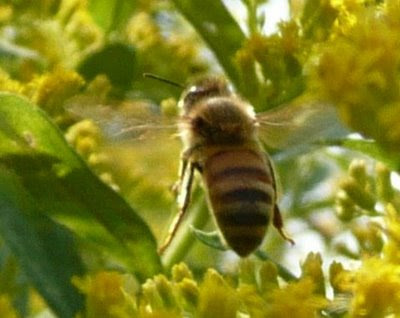
Joseph Chugg
A core value of Honey Garden’s mission is to share the honey bees with youth. We believe that this has been mutually beneficial; agricultural is very labor intensive, and the help of our youth over the years of working with the bees and bottling honey is significant. At the same time, they have learned about the value of pollination, the web of the natural world and the delicate balance our earth is now in. It is a blessing when our student workers go off to college, start beekeeping clubs, and continue to raise honey bees on their own. One of these helpers made an appointment with the college president, gave her presentation for a new beekeeping project on the school land, and he was so inspired that he walked over to his desk, pulled out his checkbook and funded the project on the spot.
The honey crop in the northeast was light in volume this season, due to a drought and ongoing challenges to the health of the bees. With the dry conditions, the color of much of the honey was darker. At Honey Gardens, we are grateful to continue our diversification into plant medicine and honey wine. Thank you for asking for our elderberry syrup at your local stores and co-ops; this makes a huge difference. Raw honey, organic elderberry, organic apple cider vinegar, and propolis are effective allies to fight the common cold.
Around the honey house, the snow has now covered the nectar and pollen plants, providing insulation protection, fertilizer, and water for the coming season. Next week, after the solstice, more light will return to the earth each day, and the queen bees will start to lay more eggs.
Thank you for all of your support of the bees, plant medicine, and those who work in agriculture.
